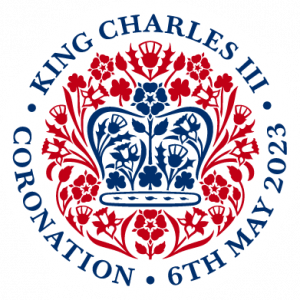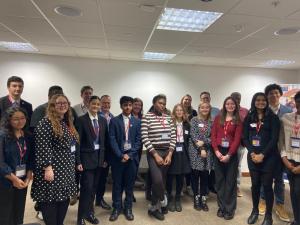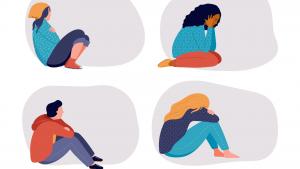The coronation of King Charles lll will take place on Saturday (6th May). It aims to be a huge national event, with a long weekend of celebration and events, with an extra Bank Holiday thrown in on Monday.
The king will travel to Westminster Abbey in London, for a ceremony attended and witnessed by thousands.
He will follow in the footsteps of 39 monarchs, with a grand parade starting outside Buckingham Palace. During the ceremony the king will take the Coronation Oath, receive the Orb and Sceptre, and have the St Edward’s gold crown placed on his head.
The last Coronation happened 70 years ago, a long time before many of us were alive. This national celebration is a chance for families, friends, and diverse communities to get involved to mark this historical event together.
What does the Coronation mean to the nation?
This Coronation means lots of different things for the nation. Some people have been camping out for days outside Buckingham Palace to secure a good spot, planning big street parties, sending letters to Buckingham Palace, getting creative or cooking some Coronation-themed treats.
It’s an event that will bring a lot of happiness and joy, but it also marks the formal change of monarch following Queen Elizabeth’s death last September – so there will be some sadness too. For many children and families, the Queen was an important symbol; someone who was constant and recognisable and, often, a reassurance.
The Queen’s death and this transition to a new monarch reminds us of findings from The Big Ask, the largest ever survey of children. Many children spoke movingly of how important their grandparents were and how they wanted to feel close to them even after they’d passed away:
“[I would like to] live in my great nan’s house who passed away. It would be nice so I can [remember] her.”
Girl, aged 8, The Big Ask
These kinds of historic moments can provide a sense of history and connectedness from that shared feeling across the country and across the ages.
How can children mark the Coronation?
Neighbours and communities can get involved by organising a lunch or street party, picnics or by joining in The Big Help Out, a National Day of Volunteering on Monday 8th May.
Why not try getting involved in activities like making a paper crown by measuring your child’s head using a piece of card. Children can decorate their crowns by painting, gluing on stickers and drawing.
There are plenty of online resources available including templates so children can colour in ready-made invitations, leaflets, and crowns. How about organising fun workshops, or tea parties where children can also play games like pass the parcel?
- Wildflowers seeds for every primary school class
The Department for Education has joined forces with the Eden Project to offer all state funded primary schools the opportunity to plant wildflowers to celebrate His Majesty The King’s commitment to fighting climate change.
Planting wildflowers aims to inspire children to learn about nature and boost the biodiversity of the school estate, building on the plans to create a National Education Nature Park.
- Learning materials for schools
To support schools to celebrate the Coronation, there are a series of lesson plans and other teaching materials for primary and secondary schools available online to explain the significance of this historical moment. Teachers can speak to children about the background and context of His Majesty The King and Her Majesty The Queen Consort’s Coronation and teach them about the key figures and items that play a crucial part in the ceremony.
What opportunities will the Coronation of King Charles III bring to young people?
His Majesty the King has been an advocate of children and young people throughout his life, through his charity work and interests, including environmental issues. To commemorate his Coronation, six green apprenticeships have been selected by industry experts for their sustainability credentials.
The apprenticeships, which will be available to people aged 16 and above, including Low Carbon Heating Technician, Sustainability Business Specialist and Countryside Worker, have been recognised for their contribution to creating a low carbon economy and will be promoted using the official Coronation emblem.
These apprenticeships encourage more people to gain the skills needed to support the transition to net zero, while meeting the skills needs of employers and boosting economic growth. The six sustainable apprenticeships were designed by employers working with the Institute for Apprenticeships and Technical Education (IfATE), who considered the impact of each occupation on the environment and future workforce.






